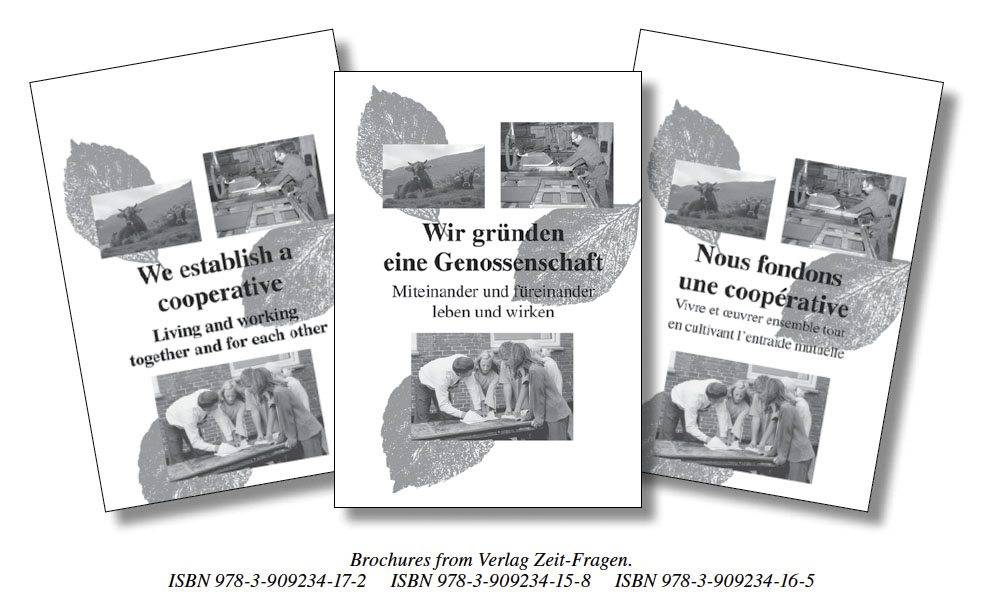The idea and practice of cooperatives are UNESCO World Cultural Heritage
The idea and practice of cooperatives are UNESCO World Cultural Heritage
ef. On 30 November 2016 the Intergovernmental Committee on the Safeguarding of the Intangible Cultural Heritage in Addis Ababa included the idea and practice of organised shared interests in cooperatives in the Representative List of the Intangible Cultural Heritage. By the adoption the idea shall be protected and at the same time its value as an economic model shall be brought back to awareness. At the same time the nomination confirms the friendship between nations as cooperatives unite us with all human beings around the globe. Working together in cooperatives is a form of human coping with life, based on self-help, self-responsibility, and self-administration, which has developed differently on the whole world. The cooperative principle includes fundamental values of human living on an equal footing and in freedom and is based on the common good (bonum commune). The ethical essentials of the idea of cooperatives are well founded in anthropology and have been valid since 150 years to date. These foundations should be preserved and developed further for future generations.
In 2012, the UN has already declared the “Year of Cooperatives“, paying tribute to the cooperatives with its 800 million cooperative members in more than 100 countries around the world.
Cooperatives are characterised by a high degree of co-creation and participation; that is why cooperatives are often preferable to other forms of enterprises. Cooperatives contribute to the eradication of poverty, they create jobs and they support social integration.
In numerous articles and contributions during the last years Current Concerns has been discussing the basic foundations of cooperatives in an interdisciplinary manner.
The brochure, entitled “We establish a cooperative. Living and working together and for each other” is an example for this. (In English/German/French) •
You can order the brochure at Verlag Zeit-Fragen. At this year’s Leipzig Book Fair from 23 to 26 March 2017 the cooperative Zeit-Fragen is going to organise two conferences on this subject.

The Intangible Cultural Heritage
The Intergovernmental Committee for the Safeguarding of Intangible Cultural Heritage is composed of 24 elected States Parties to the Convention on Intangible Cultural Heritage. Once a year it decides on the inclusion of new cultural forms in the lists of the Intangible Cultural Heritage.
So far, 336 forms have been registered on the Representative List of the Intangible Cultural Heritage of Humanity, 43 elements on the List of Intangible Cultural Heritage in Need of Urgent Safeguarding, and twelve Best Safeguarding Practices for intangible cultural heritage. Criteria for the approval include, among others, a verifiable liveliness and an identity-establishing component for the bearers of cultural expressions (“Trägergemeinschaft”), the development of safeguarding measures, a substantial participation of the bearers of cultural expressions and the inscription on the Representative List of Intangible Cultural Heritage. By registrating, the States Parties commit themselves to promote the Intangible Cultural Heritage in their respective state territories.
The Intangible Cultural Heritage includes living traditions from the fields of dance, theater, music, oral traditions, knowledge and practices concerning nature and the knowledge and skills to produce traditional crafts. Since 2003, UNESCO has supported the safeguarding, documentation and preservation of these cultural forms. Until today 171 states have ratified the UNESCO Convention for the Safeguarding of the Intangible Cultural Heritage. Switzerland has ratified the UNESCO Convention in 2008, Germany in 2013.
Source: News release of the German UNESCO Commission of 30.11.2016 and Swiss Federal Office of Culture
Swiss cooperatives
In Swiss history cooperatives represent a central corner stone. The Federal Charter of 1291, the structure of the communes, the “Landsgemeinde” (open-air assembly of all voters), and last not least the name Confederation are based on cooperative values; these historical structures and experience were reflected in 1848, when the Swiss Federal State was founded.
Based on the tradition of the commons and the Alpine cooperatives, a large cooperative movement formed in Switzerland – as well as in the rest of Europe – in response to industrialization. Thus in the agricultural sector, a particularly large number of purchasing and marketing cooperatives developed. In the 19th century the consumer cooperatives were of great significance for the national economy and represented a path toward mutual help.
Source: Zeit-Fragen Cooperative. “We establish a cooperative”, p. 10
2012 – the international year of cooperatives
According to UN information there are 800 million cooperative members in more than 100 countries; over 100 million jobs were made available by way of the cooperatives. Half of the world population receives its basis of nutrition from cooperatives. This way, the credit cooperatives, agricultural and industrial coopertives, contribute a regional economic cycle to stabilize and to encourage local jobs.
In addition, the UN demands that cities create an environment and a set of rules which encourage cooperatives as they do with other types of businesses.
One of the biggest challenges of the future is the lowering of the jobless rate of teenagers through the new founding of cooperatives or other small businesses.
Not all cooperatives function exactly the same way. But most of them follow the seven basic rules of cooperative identity which, in the course of time, have developed in the international community. These serve as guidelines and with their help transform the ideas into reality:
1. Voluntary and open membership
2. Democratic decision making by members
3. Economic participation of the members
4. Autonomy and independence
5. Education, further-education and information
6. Cooperation with other collectives
7. Provision for the community of the cooperative
Source: Zeit-Fragen Cooperative. “We establish a cooperative”, pp 16.